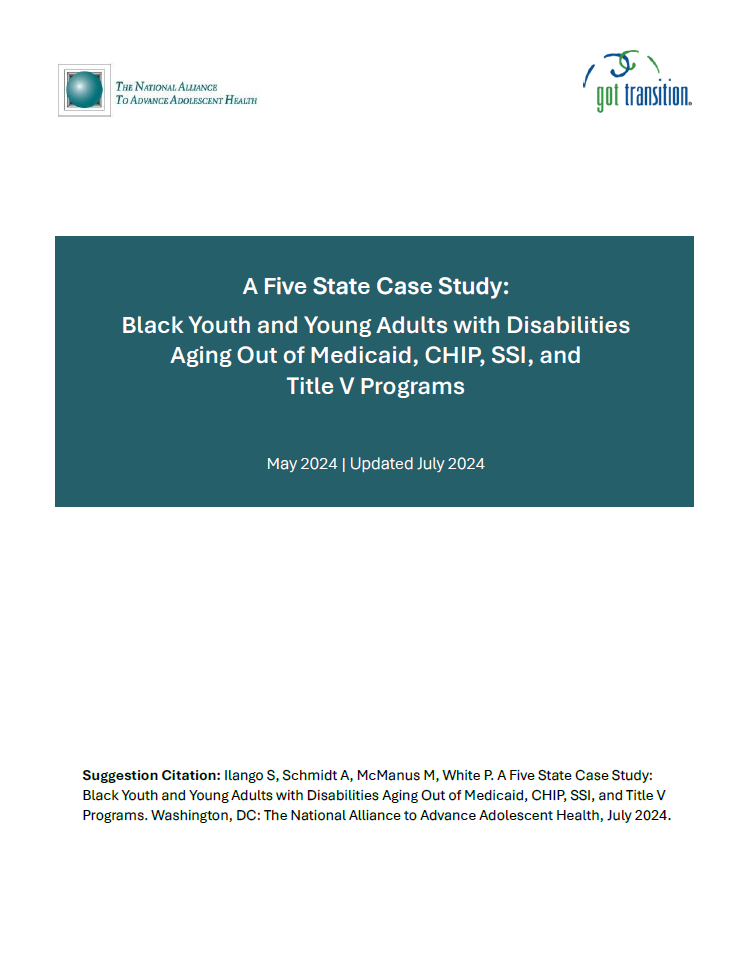A Five-State Case Study: Black Youth and Young Adults with Disabilities Aging Out of Medicaid, CHIP, SSI, and Title V Programs
Data indicates that states that did not expand Medicaid for childless adults may be leaving Black young adults with disabilities at risk of losing coverage when they transition into adulthood. The National Alliance to Advance Adolescent Health studied the experience of youth and young adults with disabilities, including intellectual and/or developmental disabilities, aging out of Medicaid, the Children’s Health Insurance Program (CHIP), the Supplemental Security Income (SSI) Program, and Title V Programs for Children and Youth with Special Health Care Needs (CYSHCN).
This five–state case study examines Alabama, Florida, Georgia, Mississippi, and Texas to understand barriers faced by Black young adults with disabilities who lose childhood eligibility status under public programs; identify populations facing the greatest disadvantage; and develop recommendations to improve policies and programs that would decrease disruptions to coverage. The authors present findings on challenges and inequities experienced by Black young adults who are aging out, recommended approaches, and stories from Black self-advocates with intellectual and developmental disabilities. The recommendations from key informant interviews also helped shape the policy and program strategies in this national report.
See more resources from this project:
Policy Briefs: Recommendations to Assist Youth and Young Adults with Disabilities Aging Out of:

Download the resources below.
Case Study